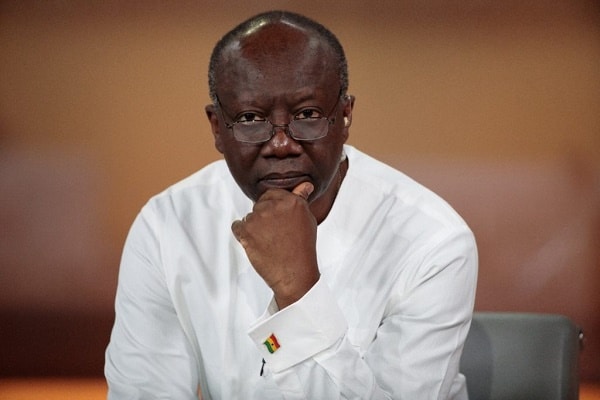IMF Urges Ghana To Maintain COVID-era Macroeconomic Gains
The International Monetary Fund (IMF) has asked the government to cement the gains made through the implementation of macroeconomic policies to contain the COVID-19 pandemic.
These macroeconomic policies were expected to provide a stable economic environment that is conducive to fostering strong and sustainable economic growth.
The report by the international financial institution noted that though Ghana has seen encouraging signs of an economic recovery, such recovery remained uneven across sectors of the local economy.
For this reason, the IMF has asked the government to ensure that prudent mechanisms are implemented to ensure economic sustainability even as a third wave of the COVID-19 is ex[ected to hit the country.
The IMF wants Ghana to ensure debt sustainability while continuing its ongoing structural reforms to deliver a sustainable, inclusive, and green economic recovery.
This was part of the recommendations, contained in its July 2021 Article IV Consultation Report on Ghana.
“In this context, Directors stressed the importance of entrenching prudent macroeconomic policies, ensuring debt sustainability, and pressing ahead with structural reforms to deliver a sustainable, inclusive, and green economic recovery,” the report stated.
The IMF explained that the country’s monetary policy stance remains broadly appropriate while noting that tighter policy would be needed if inflationary pressures are to materialise.
It was observed that Ghana’s gross international reserves were relatively high.
Therefore, there was the need to guard against erosion of external buffers, remain committed to a flexible exchange rate regime, and limit monetary financing of the deficit.
Focusing more on debts, the Article IV Consultation report noted that the country’s capacity to repay its debts has improved.
“While noting that risks to Ghana’s capacity to repay have increased, Directors concurred that they are still manageable and that Ghana’s capacity to repay the Fund remains adequate,” IMF stated.
Nonetheless, the IMF stressed that fiscal consolidation was needed to address debt sustainability and rollover risks, noting that, “Ghana continues to be classified at high risk of debt distress.”
“To protect the most vulnerable, considerations could be given to more progressive revenue measures and a faster return to the pre-pandemic level of spending, with a shift towards social, health, and development spending,” the report stated.
Economic outlook
On the country’s economic outlook, the report said that growth is expected to rebound to 4.7% in 2021 from 0.4% in 2020.
This would be supported by a strong cocoa season and mining and services activity and inflation, which remains within the Bank of Ghana’s band target.
According to the IMF, the current account deficit is projected to improve to 2.2% of the country’s gross domestic product (GDP), supported by a pickup in oil prices, and gross international reserves are expected to remain stable.
READ ALSO: Fitch Revises Ghana’s Economic Outlook To Negative
The impact of the COVID-19 on Ghana’s economic outlook
Ghana happened to be one of the global economies hit by the COVID-19 pandemic.
Many businesses, in the midst of the pandemic, closed down, just as schools, other businesses halved their staff capacity, in addition to salary cuts, leading to an economic downturn.
The government then introduced a number of responses which the IMF has said, helped contain the pandemic and support the economy, but at the cost of a record fiscal deficit.
Growth slowed to 0.4% in 2020 from 6.5% in 2019, food prices spiked, and poverty increased.
The fiscal deficit including energy and financial sector costs worsened to 15.2% of GDP, with a further 2.1% of GDP in additional spending financed through the accumulation of domestic arrears, while public debt rose to 79% of GDP.
The current account deficit widened slightly to 3.1% of GDP as the decline in oil exports was partially offset by higher gold prices, resilient remittances, and weaker imports.



